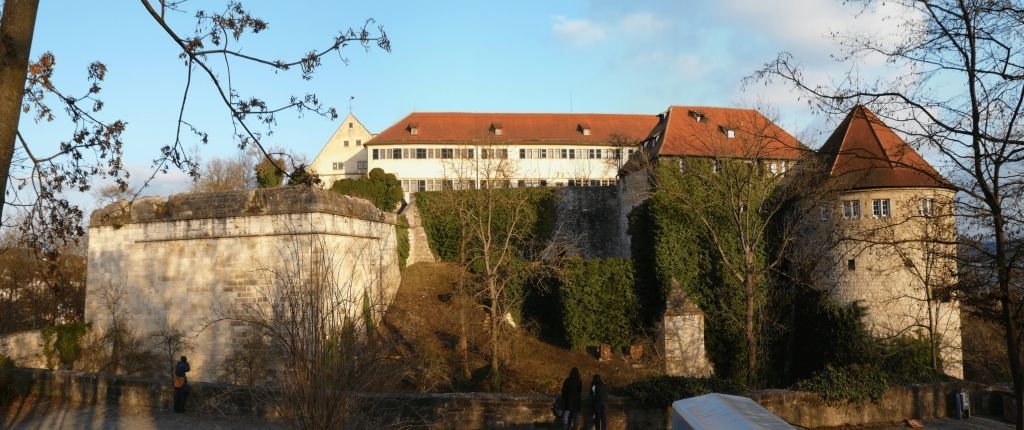Doing Animation History: Exploring Challenges and New Visions in Writing Animation Histories, 25-27/3/2019

March 25 to March 27, 2019 Hohentuebingen Castle, Tuebingen
Keynote speakers:
Franziska Bruckner, Suzanne Buchan, Edwin Carels, Malcolm Cook, Michael Cowan, Donald Crafton, Esther Leslie, Alexandra Schneider, Paul Wells, and Ulrich Wegenast
Organisers: Rada Bieberstein and Erwin Feyersinger
At the centre of the winter school is the following question: How can we write the history/histories of a field as heterogeneous and often marginalized as animation? We want to discuss methods of researching especially those aspects of animation history that are overlooked, hard to trace, and non-canonical. By promoting an interdisciplinary network of young scholars and established researchers of animation studies, film studies, media studies, art history, the history of science, and other related fields as well as film archivists, film educators, and film festival organisers, we aim at fostering innovative approaches to writing the history/histories of animation in a collaborative atmosphere.
One of the challenges of writing any animation history lies with the fact that animation is a “pervasive” cultural practice (Buchan 2013: 1–2) with many techniques, open to a range of visual languages with many individual styles, employed in almost all areas of life: from entertainment and science to education, advertisement, the arts, and information dissemination, all displayed with various technologies in different spatial contexts such as cinemas, museums, theatre stages, art galleries, hospitals, or public squares. Understanding animation in this variety and complexity with its “deep time relations of arts, sciences, and technologies” (Zielinski 2013: 26) makes the writing of a comprehensive history of animation difficult. The winter school tries to face this challenge by addressing the following and other questions:
- How can histories of animation be approached methodologically?
- How can the history of animation be theorised?
- How can animation that is part of a larger work, e.g. as title sequence, animated visualization, VFX, motion graphics, animated projection on the stage, or cutscene in a computer game, be traced in archives?
- How do archives and scholars deal with the many artefacts such as puppets, drawings, production documentation, and personal correspondence that are an essential part of the vast history of animation?
- How can we conserve knowledge of out-dated or highly individual techniques?
- How can we study the history of ephemeral forms of animation in the context of live performances such as stage productions, VJing, or on-site installations?
- How can we research animation as part of useful cinema, factual television, and scientific visualizations, especially when it is not documented by production companies and made by unnamed animators?
- Apart from writing texts, which other forms of documentation can we utilize for a historiography of animation? Which challenges do these forms pose?
Full Schedule
Monday, March 25
09:00-09:15 Opening: Angelina Linnemann (Tuebingen), Susanne Marschall (Tuebingen)
09:15-10:00 “Animation History: New Perspectives and Methods”, Rada Bieberstein and Erwin Feyersinger (Tuebingen)
10:15-11:00 “Useful Animation in Britain During the 1930s: Researching Scientific, Educational, and Advertising Animation”, Malcolm Cook (Southampton)
11:00-12:00 Workshop I (Julia Eckel): Michael J. Meindl (Radford), Andrea Polywka (Frankfurt)
13:30-14:15 “Forget the Phenakistiscope”, Edwin Carels (Ghent)
14:15-15:15 Workshop II (Naima Alam): Coralie Lamotte (Lausanne), Felix Hasebrink (Bochum)
15:45-16:30 “The Infernal Dream of Animation“, Esther Leslie (London)
16:30-17:30 Workshop III (Rada Bieberstein): Aaron Borok (Buffalo), Jorgelina Orfila and Francisco Ortega-Grimaldo (Lubbock)
17:45-18:30 “Animation and the Archival Object: Georges Schwizgebel”, Donald Crafton (Notre Dame)
Tuesday, March 26
09:00-09:45 “Death to Animation! Dick Arnall, Phoenix of the (Unwritten) UK Animation Renaissance”, Suzanne Buchan (London)
09:45-11:15 Workshop IV (Maike Sarah Reinerth): Steve Henderson (Manchester), Olga Bobrowska (Kraków), Tashi Petter (London)
11:45-12:45 Workshop V (Erwin Feyersinger): Cai Siqi (London), Jannik Müller (Siegen)
14:15-15:00 “Teaching, Making, Writing, Promoting Animation History: Synergies of Animation History, Practices, Theory and Dissemination Within Animation Education”, Franziska Bruckner (St Poelten)
15:15-17:15 Panel Discussion (Tina Ohnmacht): André Eckardt (Dresden), Mette Peters (Amsterdam) and Ulrich Wegenast (Stuttgart)
19:30 Performance “Winsor and Gertie”, Pfleghofsaal, Schulberg 2, 72070 Tuebingen
Wednesday, March 27
09:00-09:45 “The Scientific Trick Film: Animated Views and the Motion Doctrine in the Early 20th Century”, Michael Cowan (St Andrews)
09:45-10:15 Workshop VI (Malcolm Cook): Jason Cody Douglass (Yale)
10:30-11:15 “The Gold Old Time of New Media: Useful Cinema and Animation
1935”, Alexandra Schneider (Mainz)
11:30-13:30 Final Workshop and Further Prospects: Rada Bieberstein and Erwin Feyersinger (Tuebingen)
Supported by the Institutional Strategy of the University of Tuebingen (DFG, ZUK 63), the Society for Animation Studies, and AG Animation
Event Dates
- From 25/03/2019 to 27/03/2019




